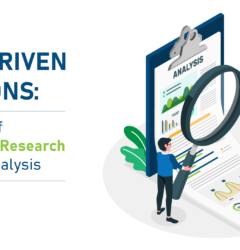11 Sep

|
Getting your Trinity Audio player ready...
|
In the dynamic world of digital content creation, artificial intelligence (AI) is playing an increasingly pivotal role. As algorithms become more sophisticated, they are reshaping how content is written, edited, and optimized, offering unprecedented efficiency and consistency.
This blend of technology and creativity is transforming the content landscape, providing new tools for writers and marketers alike.
Table of Contents
The Benefits of Using AI for Writing
One of the primary benefits of AI in writing is its ability to enhance efficiency. AI-powered tools can generate drafts, suggest improvements, and even edit content with remarkable speed and accuracy. This automation frees up valuable time for creators, allowing them to focus on strategic thinking and creative ideation rather than routine tasks. For businesses, this means quicker content turnaround and the ability to scale content production without a corresponding increase in costs.
Consistency is another critical advantage. AI tools ensure uniformity in tone, style, and structure across multiple pieces of content, which is particularly valuable for brands striving to maintain a cohesive voice. By analyzing large datasets, AI can also provide data-driven insights into what content performs best with target audiences, enabling more effective and targeted content strategies.
Examples of AI Tools in Writing and Editing
Several AI tools have emerged to assist writers and editors in their craft. Tools like OpenAI’s GPT models can generate text that is coherent and contextually appropriate, helping writers overcome blocks and generate ideas quickly. These models can produce everything from simple social media posts to complex articles, adapting to various writing styles and tones.
AI-driven editors analyze text for grammatical errors, style inconsistencies, and readability issues. They offer suggestions for improvement, ensuring that the final content is polished and professional. These tools are invaluable for maintaining high standards of quality and clarity, especially in fast-paced environments.
For content optimization, AI tools analyze content and suggest keywords and topics that can enhance AI search engine visibility. By aligning content with what audiences are searching for, these tools help creators maximize the impact of their work.
Challenges of Maintaining Creativity and Authenticity
Despite these technological advancements, the integration of AI in writing comes with challenges, particularly regarding creativity and authenticity. AI algorithms, while adept at processing data and language patterns, lack the human touch that imbues content with emotion and originality. The danger lies in producing content that, while technically sound, feels generic or impersonal.
To mitigate this, a hybrid approach that combines AI efficiency with human creativity is essential. Writers can use AI as a support tool, leveraging its capabilities to enhance their work while ensuring that the final output reflects their unique voice and perspective. This collaboration can result in content that is both technically precise and richly authentic.
The Future of AI in Writing
As AI technology continues to evolve, its role in writing is likely to expand, offering even deeper integration into the content creation process. Future developments may include enhanced natural language processing capabilities, allowing AI to understand and generate content with greater nuance and emotion. This could lead to more personalized and engaging content experiences for audiences.
The potential impact on the content industry is significant. AI could democratize content creation, making it accessible to a broader range of individuals and businesses, regardless of size or budget. As AI tools become more intuitive and user-friendly, they may empower more people to create high-quality content, fostering innovation and diversity in the digital space.
Moreover, AI’s ability to analyze vast amounts of data and predict trends could shape future content strategies, helping creators anticipate audience needs and preferences more accurately. This could lead to more proactive and responsive content marketing approaches, enhancing engagement and building stronger audience connections.
Conclusion
The intersection of AI and content creation represents an exciting frontier in the digital age. By harnessing the power of algorithms, writers and marketers can achieve new levels of efficiency, consistency, and insight. However, maintaining creativity and authenticity remains crucial, ensuring that AI serves as a partner rather than a replacement.

